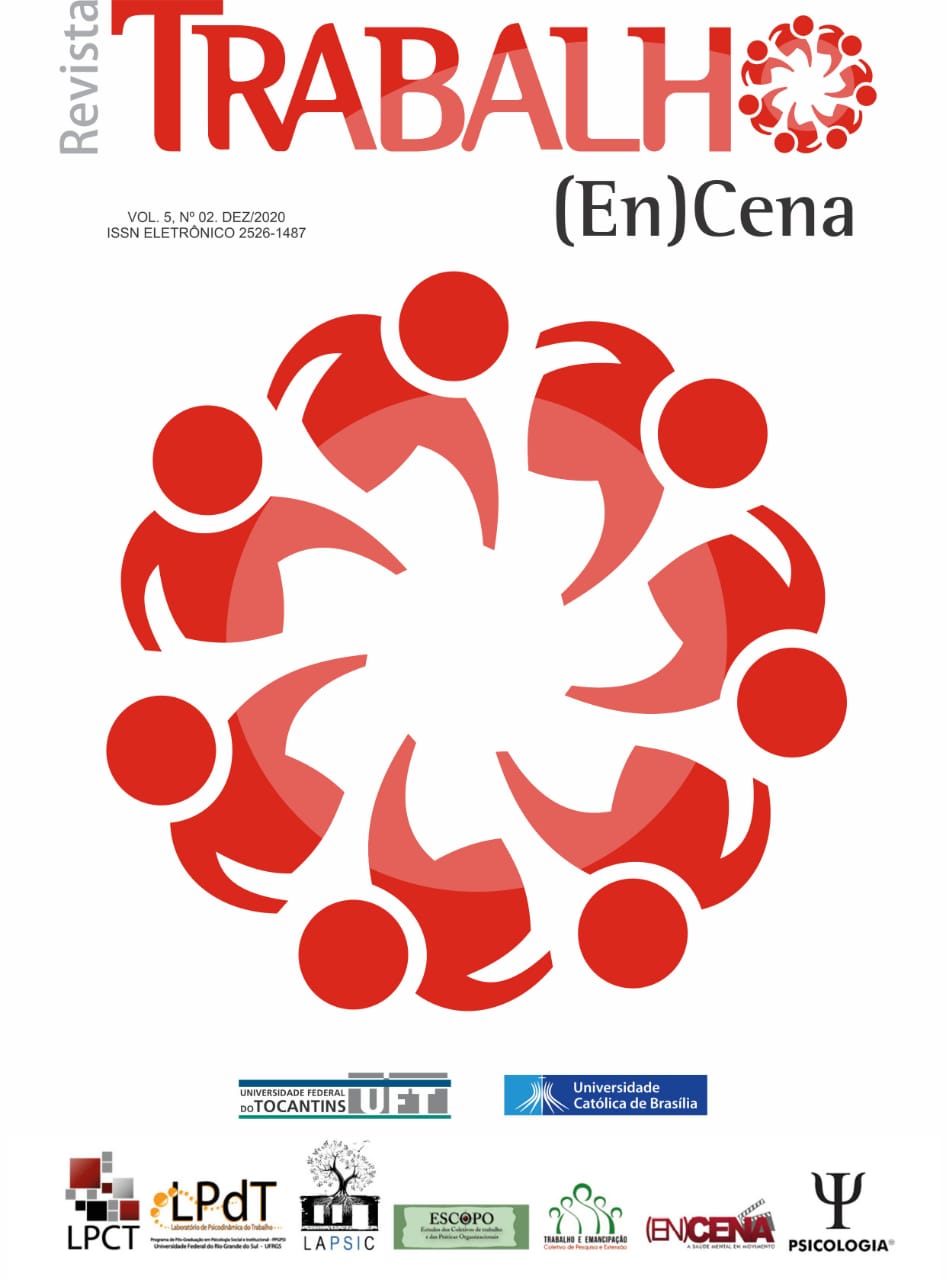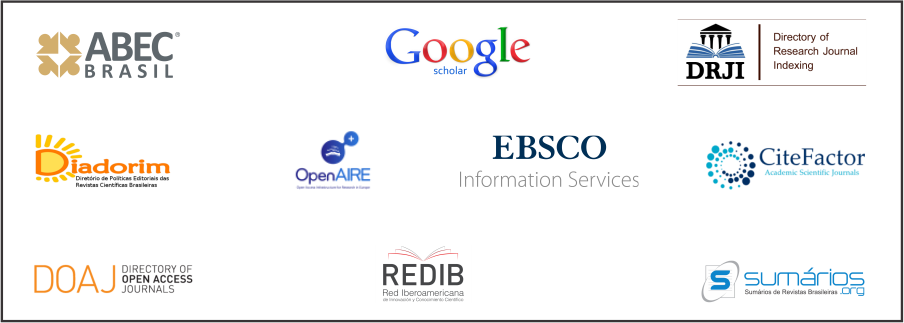Evidence for the validity of two measurement scales related to the teaching profession
DOI:
https://doi.org/10.20873/2526-1487V5N2e020006Keywords:
Job satisfaction, Professional self-efficacy, Item response theoryAbstract
This study aims to analyze two measures associated with the work engagement of early-career teachers in Quebec, namely job satisfaction and professional self-efficacy, as well as to examine the psychometric properties of the instrument used. Rasch analysis was performed to study the two measurement scales and the effect of gender and education level in the variables analyzed, using a sample of 184 novice teachers. Unidimensionality and local independence were respected for both scales under study and the results show good adjustment of the data to the two models. However, a larger number of items is needed to better determine where people lie on the scales, particularly with regard to professional self-efficacy.
References
Andrich, D. & Hagquist, C. (2004). Detection of Differential Item Functioning Using Analysis of Variance. Apresentada na 2nd International Conference on Measurement in Health, Education, Psychology and Marketing: Developments with Rasch Models, Murdoch University, Perth, Australia.
Andrich, D., Sheridan, B. & Luo, G. (2008). Rasch Unidimensional Measurement Model [Computer software]. Perth : RUMM Laboratory, 2030.
Andrich, D.; Humphry, SM. & Marais, I. (2012). Quantifying local, response dependence between two polytomous items using the Rasch model. Applied Psychology Measurement, 36, 309–324.
Bandura, A. (1997). Self-Efficacy : The Exercice of Control. New York : Freeman.
Bennet, P. (2010). Self-efficacy and Perceptions of Community: How They Relate to New Teachers' Commitment. Thèse de doctorat inédite, University of Virginia, Virginia, United States.
Bond, T. G. & Fox, C. M. (2007). Applying the Rasch model. Fundamental measurement in the Human sciences (2 ed). New York: Routledge.
Caldas, C. B., Somensari, P., Costa, S. N., Siqueira, M. M. M. & Claro, A. C. S. (2013). Satisfação e engajamento no trabalho: docentes temáticos e auxiliares da EAD de universidade privada brasileira. Gerais: Revista Interinstitucional de Psicologia, 6(2), 225-237.
Canrinus, E. T., Beijaard, D., Buitinik, J. & Hofman, A. (2012). Self-identity, job satisfaction, motivation and commitment : Exploring the relationship between indicators of teachers' professional identity. European Journal of Psychology of Education, 27(1), 115-132.
Chan, W.-Y., Lau, S., Nie, Y., Lim, S. & Hogan, D. (2008). Organizational and personal predictors of teacher commitment : the mediating role of teacher efficacy and identification with school. American Educational Research Journal, 45(3), 597-630.
Chong, S. & Low, E.-L. (2009). Why I want to teach and how I feel about teaching - formation of teacher identity from pre-service to the beginning teacher phase. Educational Research for Policy and Practice, 8, 59-72.
Duchesne, C., Savoie-Zajc, L. & St-Germain, M. (2005). La raison d'être de l'engagement professionnel chez des enseignants du primaire selon une perspective existentielle. Revue des sciences de l'éducation, 31(3), 497-518.
Engelhard, G. & Wind, S. (2018). Invariant measurement with raters and rating scales: Rasch models for rater-mediated assessments. New York, NY: Routledge.
Huang, S-Y L. & Waxman, H. C. (2009). The association of school environment to student teachers’ satisfaction and teaching commitment. Teaching and Teacher Education, 25, 235-243.
Ingersoll, R. M. & Smith, T. M. (2004). Do teacher induction and mentoring matter? NASSP Bulletin, 88(638), 28-40.
Kamanzi, P. C., Lessard, C., Riopel, M.-C., Blais, J.-G., Larose, F., Wright, A. & Bourque, J. (2008). Les enseignants et les enseignantes au Canada: contexte, profil et travail. Enquêtes pancanadiennes auprès des directions et des enseignants d'écoles primaires et secondaires au Canada (2006). Montréal : Université de Montréal.
Karsenti, T. & Collin, S. (2009). L'autre décrochage scolaire. Formation et profession, mars, 2-6.
Klassen, R. M. & Chiu, M. M. (2010). The occupational commitment and intention to quit of practicing and pre-service teachers: Influence of self-efficacy, job stress, and teaching context. Contemporary Educational Psychology, 36, 114-129.
Lent, R. W. & Brown, S. D. (2006). Integrating person and situation perspectives on work satisfaction : A social-cognitive view. Journal of Vocational Behavior, 69(2), 236-247.
Létourneau, E. (2014). Démographie et insertion professionnelle : une étude sur le personnel enseignant des commissions scolaires du Québec. Repéré à http://www.ciqss.umontreal.ca/Docs/Colloques/2014_ACFAS/Esther%20L%C3%A9tourneau.pdf
Lison, C. & De Ketele, J-M. (2007). De la satisfaction au moral professionnel des enseignants: étude de quelques déterminants. Revue des Sciences de l’Éducation, 33(1), 179-207.
Maroy, C. (2006). Les évolutions du travail enseignants en France et en Europe : facteurs de changement, incidences et résistances dans l'enseignement secondaire. Revue française de pédagogie, 155, 111-142.
Martin, A. J. & Dowson, M. (2009). Interpersonal relationships, motivation, engagement, and achievement : Yields for theory, current issues, and educational practice. Review of Educational Research, 79(1), 327-365.
Mukamurera, J. (2014). Le développement professionnel et la persévérance en enseignement : éclairage théorique et étas des lieux. In : S. Martineau, L. Portelance & J. Mukamurera (Ed.), Constats et perspectives pour soutenir le développement et la persévérance professionnels en enseignement., Développement et persévérance professionnels en enseignement. Oui mais comment?. (pp. 9-34). Québec : PUQ.
Ng, T. W. H., Eby, L. T., Sorensen, K. L. & Feldman, D. C. (2006). Predictors of objective and subjective career success : a meta-analysis. Personnel Psychology, 58(2), 367-408.
Organisation de Coopération et Développement Économiques - OCDE. (2005). Le rôle crucial des enseignants : attiver, former et retenir des enseignants de qualité. Paris : OCDE, Direction de l'éducation.
Pallant, J. F., Misajon, R. A., Bennett, E. & Manderson, L. (2006). Measuring the impact and distress of health problems from the individual's perspective : Development of the Perceived Impact of Problem Profile (PIPP). Health and Quality of Life Outcomes, 4(36), 1-13.
Parker, P. D., Martin, A. J., Colmar, S. & Liem, G. A. (2012). Teachers' workplace well-being : Exploring a process model of goal orientation, coping behavior, engagement, and burnout. Teaching and Teacher Education, 28, 503-513.
Penta, M., Arnould, C. & Decruynaere, C. (2005). Développer et interpreter une échelle de mesure. Belgique : Mardaga.
Ramp, M., Khan, F., Misajon, R. A. & Pallant, J. F. (2009). Rasch analysis of the Multiple Sclerosis Impact Scale (MSIS-29). Health and Quality of Life Outcomes, 7(58), 1-10.
Rey, J. & Coen, P-F. (2012). Évolution des attitudes motivationnelles des enseignants pour l’intégration des technologies de l’information et de la communication. Formation et Profession, 20(2), 19-32.
Skaalvik, E. M. & Skaalvik, S. (2014). Teacher self-efficacy and perceived autonomy: relations with teacher engagement, job satisfaction, and emotion exhaustion. Psychological Reports, 114 (1), 68-77.
Tabachnick, B. G. & Fidell, L. S. (2012). Using multivariate statistics (6ª ed.). Boston: Allyn and Bacon.
Downloads
Published
How to Cite
Issue
Section
License
Os direitos autorais dos artigos publicados pela Revista Trabalho EnCena permanecem propriedade dos autores, que cedem o direito de primeira publicação à revista. Os autores devem reconhecer a revista em publicações posteriores do manuscrito. O conteúdo da Revista Trabalho EnCena está sob a Licença Creative Commons de publicação em Acesso Aberto. É de responsabilidade dos autores não ter a duplicação de publicação ou tradução de artigo já publicado em outro periódico ou como capítulo de livro. A Revista Trabalho EnCena não aceita submissões que estejam tramitando em outra Revista. A Revista Trabalho EnCena exige contribuições significativas na concepção e/ou desenvolvimento da pesquisa e/ou redação do manuscrito e obrigatoriamente na revisão e aprovação da versão final. Independente da contribuição, todos os autores são igualmente responsáveis pelo artigo.






